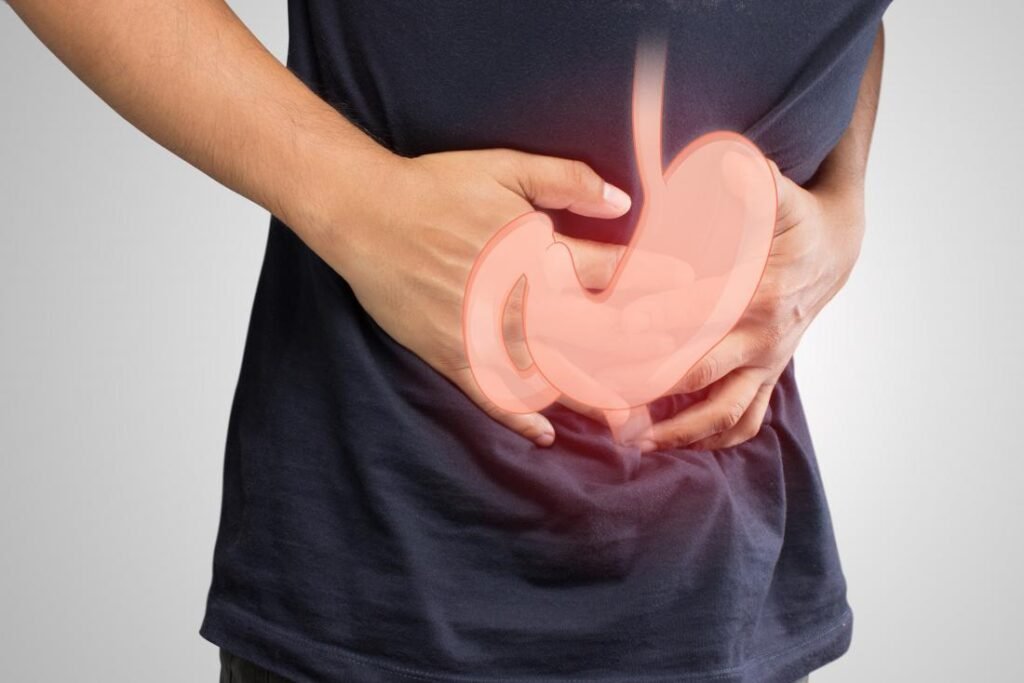
Gastroparesis
Gastroparesis means partial paralysis of the muscles of the stomach caused by damaged nerves and muscles.
In gastro paresis peristalsis movements of the stomach slows down and are unable to move down the food into the small intestines that affect the digestion and food stays in the stomach for a long period of time.
What are the Causes of Gastroparesis:
Gastro paresis is caused by damage to the vagus nerve.
Normally, the vagus nerve helps in the contraction of the stomach that helps the food to move out from the stomach into the small intestines.
But in gastroparesis movements slows down.
Diabetes is the most common cause of chronic diabetes that can damage the vagus nerve.
Other causes:
• History of abdominal surgery and injury to the vagus nerve.
• Viral infections like parvovirus, cytomegalovirus, epstein-Barr virus, varicella virus, and herpes virus can
• Certain medications like opioids, tricyclic antidepressants, calcium channel blockers, antipsychotics,s or some diabetes drugs or progesterone can cause gastroparesis.
• Scleroderma: connective tissue disorders.
• Neurological disorders like Parkinson’s can cause gastroparesis.
• Hypothyroidism.
Gastroparesis Symptoms:
1. Burning of the chest.
2. Gastroesophageal reflux disease.
3. Nausea
4. Vomiting of undigested food.
5. Bloating of the abdomen.
6. Loss of appetite
7 Fullness feeling of the abdomen all the time
8. Diabetes
9. Abdominal pain and cramps
10. Weight loss due to lack of appetite
11. Constipation
12. Unsatisfactory stool.
Complications:
1. When food stays in the stomach for a longer period of time it can cause fermentation of the food that is the most favourable environment for the growth of bacterias.
2. When stomach contents get hardened and called bezoars and that can cause blockage blockage between the stomach and intestines.
3. Weight loss.
4. Lack of nutrition
5. Dehydration.
Diagnosis Gastro paresis:
• Blood test: To determine the infection, diabetes, malnutrition or electrolyte imbalance.
• Barium x-ray: it helps to see the inside of the digestive tract. In which the patient has to swallow a white liquid called barium and then an x-ray is taken. the barium coats the lining of the oesophagus, stomach and intestines.
• Radio isotype gastric emptying scan also known as gastro scintigraphy
• Gastro manometry: to check the electrical activities of the muscles of the stomach.
• The smart pill: swallowing of the tiny electrical devices that sends information on how fast the device is travelling in the digestive tract.
Management:
• Take 6 small meals instead of 3 large meals per day.
• Take plenty of fluids.
• Avoid high fatty food.
• Take good control of the blood glucose levels.
• Avoid smoking
• Avoid alcohol.
Homeopathy medicines for Gastro paresis:
1. Opium: opium is well-indicated medicine for the incoordination of the muscle of the stomach. Insensibility of the nerves. Painful inflammation of the stomach and epigastric region. Nausea and vomiting. Vomiting of greenish matter. Obstinate constipation. The sensation of fullness as if a weight has kept on the abdomen. Paralytic atony of bowel after laparotomy.
2. Lycopodium: it is well-indicated medicine for weak digestion with malnutrition. Bloating and belching and acts on diabetes as well. Pressure in the stomach with difficult breathing. The fullness of the stomach after eating so little.
Dyspepsia is due to farinaceous and fermentable food.
Vomiting of dark greenish matter.
3. Nux vomica: nux vomica has very good results in stomach disorders. The region of the stomach is very sensitive and aggravated when applying pressure. Cramps and nausea get worse in the morning. Sour bitter belching in the morning. Nause and vomiting with much retching.
Vomiting of greenish matter or undigested food particles.
The unsatisfactory feeling after passing stool. Black or brown stool with an offensive smell.
4. Pulsatilla: pulsatilla can be given when there is vomiting after eating or drinking. Sour belching after having food.
Vomiting of undigested food that is of yellowish greenish colour. There is heartburn with a bad taste in the mouth.
Belching with a sour taste. Vomiting after attempt of drinking water.